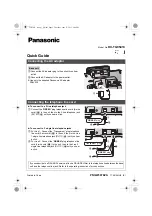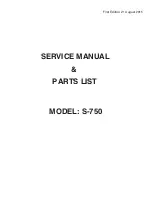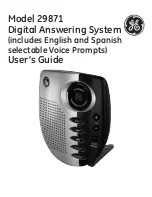
BabyLock.com
Page 25
Section 8: Adjusting the Hopping Foot and Presser Bar
Height (Continued)
Tools required: 3 mm handle Allen, 0. 5 mm feeler gauge QM40133.
Check: When the needle bar is in its lowest position,
the sewing foot should be no higher than 0.5 mm
above the needle plate. It is permissible for the
sewing foot ring to lightly touch the needle plate.
NOTE: It is important to check how far the
foot or foot adapter is screwed into the
presser bar before resetting the presser bar
height internally at screw C. This is in case
the end user has changed the foot height
by screwing the foot in or out a number of
times. This will negatively affect the amount
of presser bar spring tension on the hopping
foot and consequently create stitching
problems including skipped stitches. (It is not
recommended that the customer change
the hopping foot height, for this reason) See
previous page .
If a correction is necessary:
• Turn the hand wheel until the needle bar is at its
lowest position. This is the position where the
presser bar is also in its lowest position.
• Place the 0.5 mm feeler gauge (Part # QM40133)
under the hopping foot .
• Loosen screw C through the machine front cover
access hole (3 mm Allen driver).
• Wiggle the presser bar up or down to the desired
position. Tighten screw C firmly while pushing
down lightly on the tool blade towards the table.
This will ensure that the lifting link and hopping
block mechanism make appropriate contact inside
the machine for the hopping foot to work properly.
Â
IMPORTANT: When screw C is loosened, the
presser bar guide block and the lifting link can
move up off the hopping block mechanism.
In this case the hopping foot will not function
properly or be the correct height above the
needle plate .
5. Confirm the ring of the foot is centered on the
needle when the screw C is re-tightened.
Screw
“C”
Screw “C”
access hole
Shown with front cover off to see screw “C” and lifting link
Lifting Link
















































